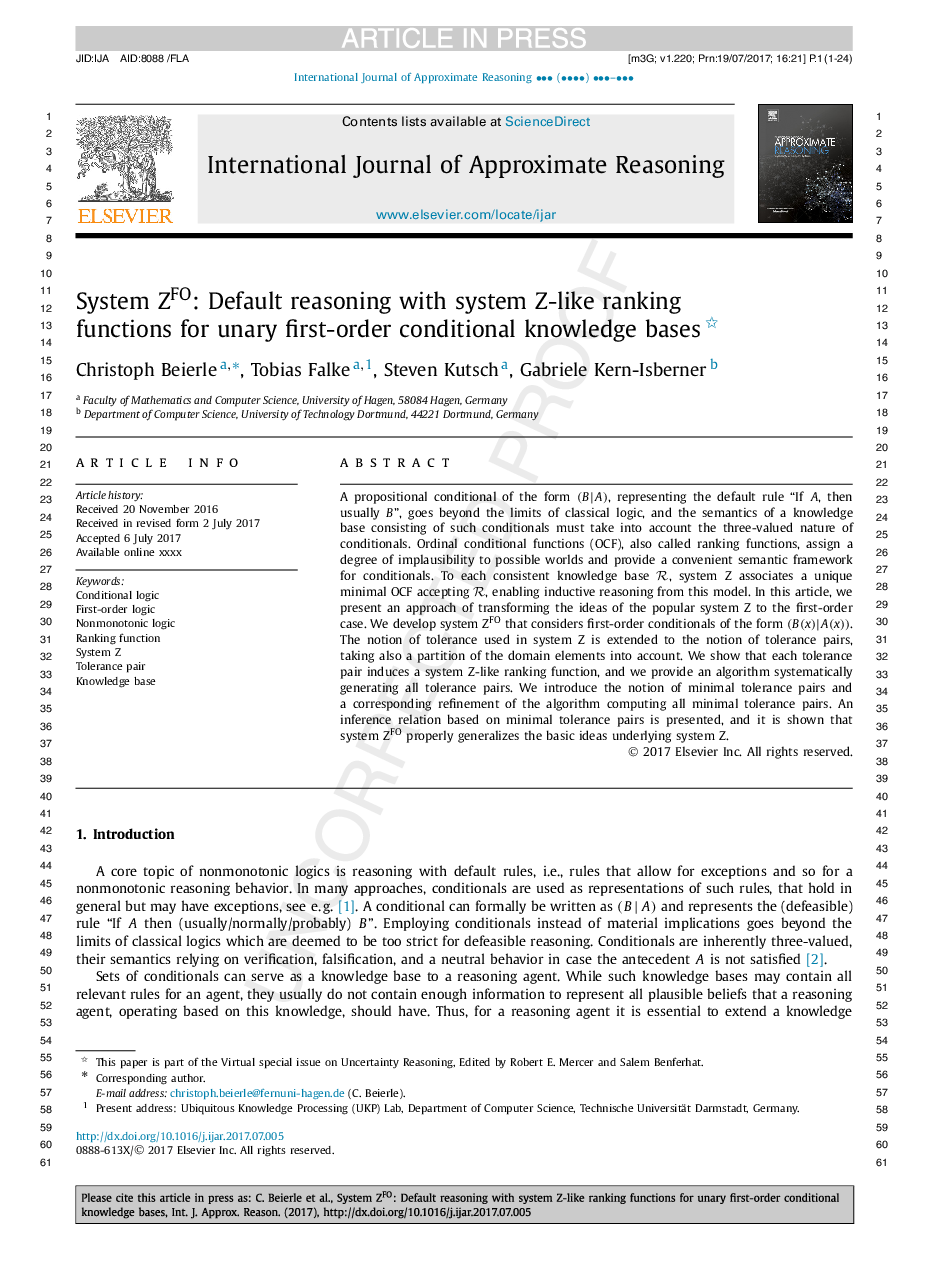| Article ID | Journal | Published Year | Pages | File Type |
|---|---|---|---|---|
| 4945195 | International Journal of Approximate Reasoning | 2017 | 24 Pages |
Abstract
A propositional conditional of the form (B|A), representing the default rule “If A, then usually B”, goes beyond the limits of classical logic, and the semantics of a knowledge base consisting of such conditionals must take into account the three-valued nature of conditionals. Ordinal conditional functions (OCF), also called ranking functions, assign a degree of implausibility to possible worlds and provide a convenient semantic framework for conditionals. To each consistent knowledge base R, system Z associates a unique minimal OCF accepting R, enabling inductive reasoning from this model. In this article, we present an approach of transforming the ideas of the popular system Z to the first-order case. We develop system ZFO that considers first-order conditionals of the form (B(x)|A(x)). The notion of tolerance used in system Z is extended to the notion of tolerance pairs, taking also a partition of the domain elements into account. We show that each tolerance pair induces a system Z-like ranking function, and we provide an algorithm systematically generating all tolerance pairs. We introduce the notion of minimal tolerance pairs and a corresponding refinement of the algorithm computing all minimal tolerance pairs. An inference relation based on minimal tolerance pairs is presented, and it is shown that system ZFO properly generalizes the basic ideas underlying system Z.
Related Topics
Physical Sciences and Engineering
Computer Science
Artificial Intelligence
Authors
Christoph Beierle, Tobias Falke, Steven Kutsch, Gabriele Kern-Isberner,
